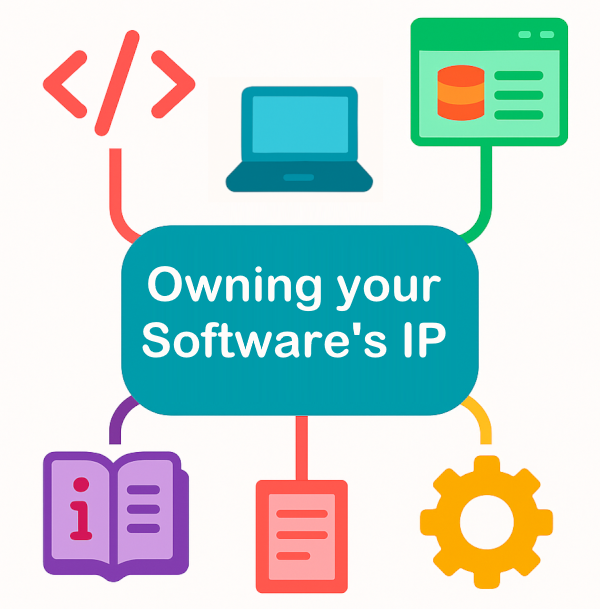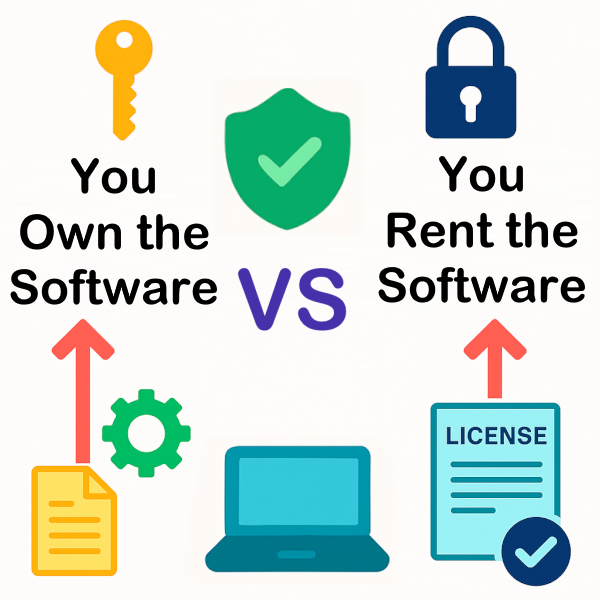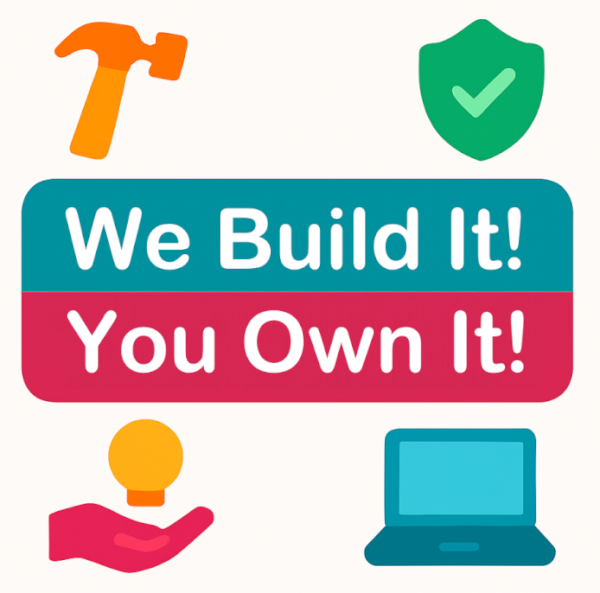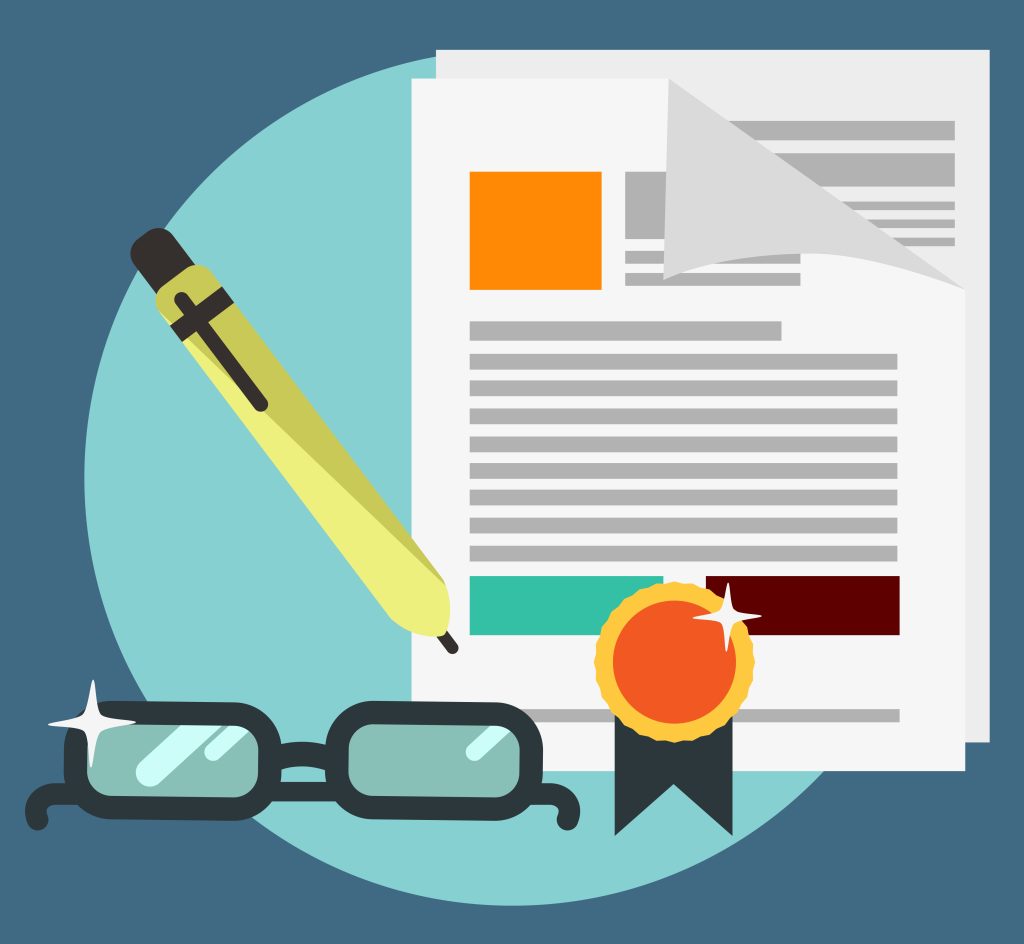Introduction to: Owning Your Software IP
When investing in software to run or grow your business, there’s one crucial factor you should never overlook: software IP (short for software intellectual property). While you may be focused on the features, timeline and budget of your new system, it’s vital to understand what you’re really paying for and more importantly, what you own at the end of the project.
Many people assume that once they’ve paid for a software system, they automatically own it. But that’s not always the case. In fact, if you’re using off-the-shelf software or working with developers who retain the IP, you may only have a licence to use the software and not have any rights to modify, resell, or fully control it.
At BSPOKE Software, we take a clear stance on this: our clients always own the software intellectual property we build for them. This means you get full rights, full access, and full control. Read on to find out why this matters and how it can affect your business long-term.
| Disclaimer: Although BSPOKE Software give you full ownership of your software IP. Owning the IP doesn’t automatically protect your code from being copied or misused. For full legal protection, we recommend speaking to a qualified solicitor who specialises in intellectual property. This post is for general guidance only and not legal advice. |
What Is Software Intellectual Property?
Software intellectual property (IP) refers to the legal rights that come with owning everything that makes a software application work. If you’ve paid for custom software to be built for your business, it’s important to understand what parts of that software you own. Software IP isn’t just about the code; it includes a full range of elements that are often hidden behind the scenes.
So, What Does It Mean to Own Software IP?

When you own the software IP, you’re not just using the software; you own it, in every sense.
That means:
- You can change it whenever you want
- You can let others use it, or stop them
- You can sell it, licence it, or reuse it in other projects
- You don’t need to ask anyone’s permission
It gives you full freedom and control, just like owning a piece of land or a building. Owning your Software’s IP includes, but isn’t limited to:
💻 Source Code
The human-readable instructions developers write.
This is the actual text written by software developers in programming languages like JavaScript, Python, or C#. It tells the software what to do. Without the source code, it’s much harder to update, fix, or improve the software later.
🏛️ Software Architecture and Data Models
The structure and framework behind your software, including how data is organised.
Think of this like the blueprint of a building. It includes how different parts of the software talk to each other, and how your data is stored and accessed. It’s essential for scaling, maintaining, or rebuilding the software later.
🎨 User Interface (UI) and User Experience (UX) Design
How the software looks and feels to use.
This includes everything your users see on screen; buttons, menus, layouts, colours and how easy the software is to navigate. Good design is not just about looking nice; it’s about being easy and pleasant to use.
🧠 Algorithms and Logic
The “thinking” behind how your software makes decisions.
These are the smart processes and calculations the software runs in the background. For example, sorting a list by date, recommending a product, or sending a reminder email at the right time. These can be simple or highly specialised.
📘 Documentation and Manuals
Instructions for how the software works or how to use it.
This can include technical documentation for other developers, as well as user guides or admin manuals. It’s especially useful if your team changes or you bring in a new developer; good documentation saves time and money.
⚙️ Proprietary processes
Unique methods or workflows built into the software.
If your software includes proprietary business processes that are unique to your company; like how you quote a job, manage customers, or calculate pricing; those can be protected too. This is often a valuable part of your competitive advantage.
Who Really Owns Your Software?

When you purchase off-the-shelf software, you’re not actually buying the software itself, you’re buying permission to use it. This is usually called a software licence, and it comes with a set of rules or terms that tell you what you can and can’t do with it.
You can’t change the code, you can’t sell it, and often, you’re stuck with whatever features the software company decides to add (or remove) in the future.
By contrast, when you commission custom software and retain the software intellectual property (IP), you’re not just using the software; you own it. That means you control how it works, how it’s used, and what happens to it in the future. It becomes a real business asset, something unique that you can build on, adapt, or even sell.
Off-the-Shelf vs Custom Software (IP-Owned)
This table shows a side-by-side comparison of what you get with typical off-the-shelf software versus what you get when you own the IP of your custom-built system:
Let’s break that down a bit more:
| Off-the-Shelf Software | Custom Software (IP-Owned) |
|---|---|
| Pay for a licence: You’re renting access, not owning anything. | Own the source code: You fully control the building blocks. |
| Limited modifications: You can’t change much (if anything). | Fully customisable: You can update, tweak, or extend it however you like. |
| Shared software: Everyone uses the same version; nothing is tailored. | Unique build: Made specifically for your business, your processes. |
| Vendor controls updates: They choose when and how it changes. | You decide the future: Add features when you want, not when they do. |
| No resale rights: You can’t make money from it. | Full monetisation freedom: Licence, sell or scale it as you like. |
Checklist – Do You Really Own Your Software?
This checklist is a quick and easy way to see what rights and flexibility you get depending on whether you use off-the-shelf software or invest in custom software with IP ownership.
| Feature | Off-the-Shelf Software | Custom Software (with IP Ownership) |
|---|---|---|
| Own the source code | ❌ | ✅ |
| Full rights to modify | ❌ | ✅ |
| Can sell or license to others | ❌ | ✅ |
| Independence from vendor | ❌ | ✅ |
| Business asset you can value/resell | ❌ | ✅ |
| Tailored functionality | ⚠️ (limited) | ✅ |
| Long-term scalability and flexibility | ⚠️ | ✅ |
| ❌ = You don’t have this right | ✅ = You have full ownership and control | ⚠️ = Some limited options may exist, but not truly custom |
With custom software from BSPOKE Software, you always keep the software IP, meaning it belongs entirely to you. You’re not just investing in a tool; you’re investing in an asset you can grow, develop, or even monetise as your business evolves. If you are currently thinking of investing in a custom software system for your business, fill in our contact form for a free consultation.
What It Means to Own Your Software IP
Owning software IP isn’t just a legal technicality; it gives you long-term power and flexibility. It means:

- You have access to the source code and technical documentation.
- You can hire any developer to maintain or expand it, not just the original team.
- You’re free to adapt or repurpose the software as your business evolves.
- You can license it to others, turning it into a product you can sell.
- The software becomes a tangible asset on your balance sheet, boosting company valuation.
However, note that using open-source tools within your software (a common and valid practice) may introduce shared licensing terms. At BSPOKE Software, we disclose and document these clearly, so you know exactly what you own and what’s subject to external licences.
The Rewards of Owning Your Software IP
Owning your software intellectual property gives you real freedom and long-term benefits. Here’s how it can help your business grow and stay competitive.
🛠️ True Ownership Means Full Control
You’re not tied to any software provider’s rules. You can update features, fix issues, or expand your system at any time; on your terms. You never have to ask for permission or wait for someone else to act.
➡️ You’re in charge of your software, not the other way round.
🏁 Create a Competitive Edge
Your software is made for your business, so it fits your exact needs. That makes it hard for others to copy.
Unlike generic tools, your system supports the way you work; not the way everyone works.
➡️ Your tech becomes a unique strength that sets you apart.
💼 Turn Your Tech into a Revenue Stream
Because the software belongs to you, you can resell it, licence it, or create a new business around it.
If your tool solves a common problem, others may want to use it too.
➡️ You’ve created something valuable and now it can earn money back.
🔐 Avoid Vendor Lock-In
You’re free to work with other developers or providers if your current one no longer fits.
You don’t lose your system or must start again just because a company shuts down or changes direction.
➡️ You stay in control of your tech and your future.
📈 Boost Valuation and Investor Appeal
Investors and buyers see owned software IP as a real asset. It increases your company’s value and makes it more attractive. It shows that your business has something special and lasting; something nobody else owns.
➡️ Your tech adds long-term value to your business.
Final Word
These aren’t just technical perks; they’re real business advantages. That’s why BSPOKE Software always gives full IP rights to our clients. You paid to build it; you should own it.
The Risks of Not Owning Your Software IP
Many businesses are surprised to learn that they don’t own the software they rely on every day. This happens a lot with off-the-shelf software or even with some custom-built tools where IP rights were never clearly agreed.
At first, everything might seem fine; but over time, not owning the software IP can lead to serious problems, including:
🔒 Inability to modify or upgrade the system
You might want to improve or update your software; maybe to add a new feature or make it faster. But if you don’t own the IP, you can’t just make changes. You’re limited to what the software provider allows, and they may say no or charge extra for every little adjustment.
💰 Costly licence renewals or usage fees
Most off-the-shelf software comes with ongoing fees; monthly or yearly charges just to keep using it. These costs add up and often increase over time. You’re also paying for licences per user, per device, or even by feature, which can be expensive as your team grows.
💥 Disruption if the vendor goes out of business
If the company that built or runs your software shuts down, gets bought, or changes direction, your system could stop working; or lose support entirely. With no access to the source code or IP, you might have to start from scratch.
📄 Legal restrictions on repurposing or selling the tool
Even if your business comes up with an amazing process or feature using the software, you usually can’t sell it, share it, or reuse it elsewhere. The licence agreement will often forbid this. The software is theirs; not yours; so, they set the rules.
📉 Missed opportunities to monetise your technology
Without IP ownership, you can’t turn your software into a product. You might have built something valuable, but you can’t package it, licence it to others, or turn it into a revenue stream. That means you’re building value for someone else, not for your business.
🚨 A Costly Mistake
When you don’t own your software, you’re often investing time, money, and ideas into something that benefits another company; not yours. You’re helping them grow their product, while limiting your own freedom to innovate, scale, or sell.
Real-World Examples: What IP Ownership Enables
Asbestos Management Company Builds a SaaS Tool

An asbestos management company came to us needing a system to help track site visits, generate reports, and manage repeat inspections. After we built their custom tool, they realised that other companies in the same industry faced similar challenges.
Because they owned the software IP, they were able to rebrand it and offer it as a white-label solution to other firms. This not only helped others but created a new stream of income for their business.
Electrical Company Considers Future Acquisition

We worked with an electrical company that needed a web portal to help manage quotes, job scheduling, and client communication. Everything was built around how they worked day to day.
Later, when a larger firm was looking to buy them, one thing stood out; the electrical company fully owned their software intellectual property. The buyer saw this as an asset.
How BSPOKE Software Handles Software IP
We believe custom software should be yours, in every sense of the word.
At BSPOKE Software, we guarantee that our clients retain full software intellectual property rights to any bespoke system we build. This includes:
- Complete source code access
- Full legal ownership of the final product
- Transparent documentation of any third-party tools used
- No hidden clauses or restrictions in your agreement
This approach puts you in control of your investment; today, and in the future.
Want to work with a software company that puts your ownership first? Get in touch with BSPOKE Software for a free software consultation and find out how we can help you build a valuable, scalable system that you fully own.
Common Questions About Software IP
❓ Do I really need to own the software IP?
✅ Yes; if you want control, flexibility, and the option to earn from your software. Owning the software intellectual property gives you full control over how your software is used, changed, or shared. Without ownership, you’re limited to whatever terms the original developer or software vendor sets. That might include extra charges, restrictions on future updates, or even being stopped from using it in new ways. If you want freedom to grow and adapt the software or turn it into something you can sell or licence; owning the IP is a must.
❓ Can I still use open-source tools?
✅ Yes, and it’s very common. We’ll explain each part clearly. Many custom software projects use open-source tools to speed up development and keep costs down. These tools come with licences that allow developers to use them legally. At BSPOKE Software, we make sure you understand exactly which open-source components are included and what their terms are. Your overall project is still yours, and the software IP we create for you remains your property.
❓ Is IP ownership included by default?
✅ Not always; but at BSPOKE Software, it’s guaranteed. Some development companies keep the rights to the code they write, even after you’ve paid for the project. That means you’re paying for something you don’t fully own. At BSPOKE Software, we make it clear from the start: you own the software IP. We include this in your contract so there’s no confusion or fine print. You’ll have full legal ownership of the system we build for you.
❓ What happens if I want to change development providers later?
✅ You’re free to switch at any time; with no hassle. When you own the software intellectual property, you can give the code and documentation to any developer you choose. You’re not tied to us or anyone else. This gives you long-term freedom; whether you want to build a new team, reduce costs, or bring development in-house later. We’ll even help with the handover if needed.
Final Thoughts: Make IP Ownership Part of Your Software Strategy
The software and/or digital transformation you invest in should be a lasting asset for your business. Whether you’re creating an internal system, customer-facing app, or a brand-new platform; owning the software intellectual property gives you the freedom to grow, evolve, and profit from your technology.
Before you commit to any project, ask this one question:
Will I own the IP?
If the answer isn’t a clear “yes”, it may be worth rethinking the project, so you can build something that truly belongs to you.

